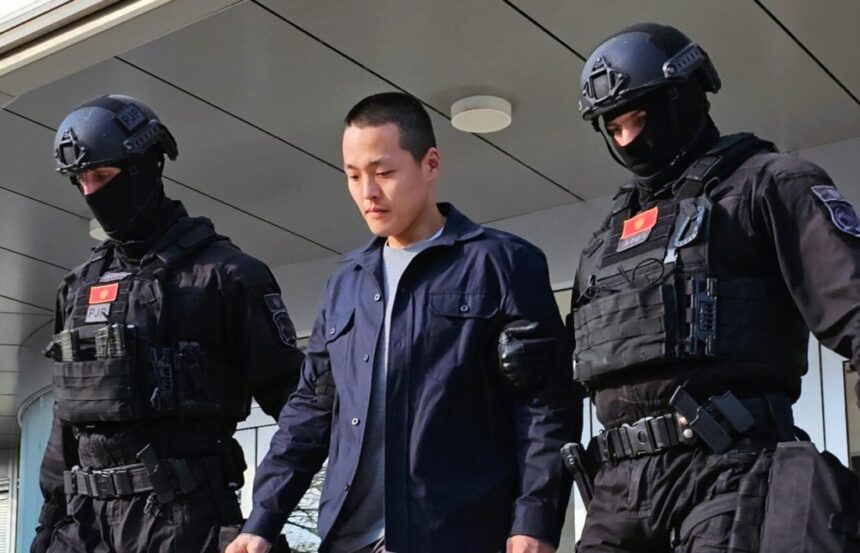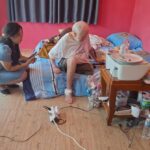NEW YORK – Do Kwon, the South Korean entrepreneur and co-founder of Terraform Labs, pleaded guilty to two counts of conspiracy and wire fraud in a Manhattan federal court on 12 August 2025.
The 33-year-old, who helped launch the Singapore-based crypto firm, stood at the centre of one of the largest scandals to hit the crypto sector. The charges followed the dramatic fall of Terraform’s popular tokens, TerraUSD and Luna, in May 2022.
The crash wiped out around $40 billion from the market, shaking trust in digital assets worldwide. Kwon’s appearance before U.S. District Judge Paul A. Engelmayer drew a line under nearly three years of legal battles, ending with his extradition from Montenegro to face prosecution in the United States.
The Story Behind TerraUSD’s Collapse
Do Kwon set up Terraform Labs in 2018, promising new financial solutions built on blockchain technology. The key offering was TerraUSD (UST), an “algorithmic stablecoin”, designed to keep its value at $1 through software rules linked to its sister token, Luna.
Unlike traditional stablecoins, which use cash or government bonds for backing, UST uses mint-and-burn mechanics and incentives. The growing hype in 2021, pushed by Anchor Protocol’s 20 percent yields, attracted big money. By spring 2022, Luna’s price had gone above $119, with the combined value of UST and Luna reaching $50 billion.
Kwon liked to speak boldly online, brushing off worries about UST’s design. In early May 2022, he famously tweeted, “Deploying more capital – steady lads,” as the first signs of trouble emerged.
Within days, UST lost its $1 value, falling as low as $0.30. Luna’s supply exploded while its price tumbled from $80 to nearly zero. The crash wiped out approximately $40 billion and triggered a wider sell-off in crypto markets. The shockwaves contributed to the downfall of firms like FTX.
Prosecutors argued that Kwon ran a long-running scheme to hide UST’s weaknesses. They focused on an event in May 2021 when UST briefly broke its peg. At the time, Kwon insisted the “Terra Protocol” worked as promised, but prosecutors uncovered that he arranged for a trading firm to buy up UST in secret, propping up its price.
They said this false claim misled both retail and institutional investors, helping Luna inflate in value while disguising UST’s fragile foundation.
The Search and Arrest of Do Kwon
After the project collapsed, authorities from South Korea put out a warrant for Kwon’s arrest in September 2022. Interpol added him to its wanted list. Do Kwon insisted he was not hiding, but his location was unknown until March 2023, when he was caught at Podgorica Airport in Montenegro. He tried to board a private flight to Dubai using forged documents, leading to his conviction for passport fraud and a short jail term there.
South Korea and the United States both sought his extradition, creating a legal contest. Kwon argued he should be sent to South Korea, where financial penalties tend to be lighter, but Montenegro’s justice minister, Bojan Božović, approved his extradition to the United States in December 2024. Kwon arrived in New York at the end of 2024, facing a nine-count indictment for securities fraud, wire fraud, commodities fraud and a money laundering conspiracy.
The Terra crash left thousands with major losses. Many individual investors trusted Kwon’s bold promises and watched their life savings vanish. On social media, stories surfaced of a single mother losing $200,000 and pensioners left with nothing. Large investors, including funds and trading platforms, also recorded heavy hits.
Following his guilty plea, users voiced both relief and anger online. One wrote, “Finally, some accountability,” while another said, “Too late for those of us who lost everything. Where’s the justice in that?”
The announced plea deal, which could cap Do Kwon’s prison time at 12 years instead of the possible 25, brought a mix of reactions. Some in the crypto world say the outcome sends an important message for accountability, while others feel the punishment is too light given the scale of destruction. Many now face deep mistrust of algorithmic stablecoins and the firms that promote them.
Plea Deal and Possible Sentence
Do Kwon’s guilty plea followed months of legal back-and-forth. Having first claimed innocence in January 2025, Kwon changed his stance in August, reportedly in exchange for a shorter sentence and by agreeing to forfeit $19 million and assist investigators.
This cooperation could expose more details about how Terraform Labs operated. Sentencing is due on 11 December 2025, with a highlighted maximum of 25 years, but the plea deal could see a reduction to 12 years.
His confession comes after a civil settlement with the U.S. Securities and Exchange Commission in June 2024, where Do Kwon and Terraform agreed to pay $4.47 billion, and Kwon personally faced a $204 million penalty.
Terraform Labs filed for bankruptcy in January 2025, which complicates the recovery of funds for investors. The size of the SEC settlement reflects the scale of the wrongdoing, but still leaves many affected people waiting for answers as the remaining assets are divided in court.
Do Kwon’s downfall has become a warning for the cryptocurrency world. The Terra crash showed that risky experiments in finance can inflict serious damage on small investors and added fuel to calls for regulation.
SEC Chair Gary Gensler pointed out that failure to follow the law leaves ordinary people exposed. The scandal fits into a wider pattern that includes cases like FTX’s Sam Bankman-Fried, jailed for 25 years, and Celsius Network’s Alex Mashinsky, who admitted guilt in December 2024.
For authorities, the event stressed the need for clear rules for stablecoins and new forms of decentralized finance. U.S. agencies have stepped up scrutiny, and global regulators are calling for tougher standards. For anyone investing in crypto, the disaster underlines that big rewards can hide big risks.
Do Kwon now waits for his sentencing. His rise from a tech leader to a convicted fraudster highlights the dangers of unchecked risk-taking in crypto. The outcome in December will likely shape how the industry talks about trust and accountability for years to come.














